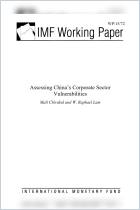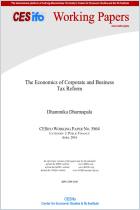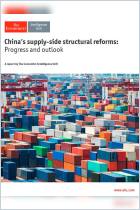Join getAbstract to access the summary!

Join getAbstract to access the summary!
W. Raphael Lam and Philippe Wingender
China
How Can Revenue Reforms Contribute to Inclusive and Sustainable Growth?
IMF, 2015
What's inside?
The fiscal reforms China undertakes now will have significant implications for its future.
Recommendation
China’s inefficient, regressive tax system hampers the country’s development and reform efforts. With its economy running out of steam, China will have to stoke its productivity and growth engines through fair and sustainable fiscal policies. This timely report from International Monetary Fund economists W. Raphael Lam and Philippe Wingender outlines how specific changes could raise tax revenues to pay for China’s growing social and environmental needs. getAbstract recommends this sensible study to executives, policy makers and China watchers.
Summary
About the Authors
W. Raphael Lam and Philippe Wingender are economists at the International Monetary Fund.






















Comment on this summary